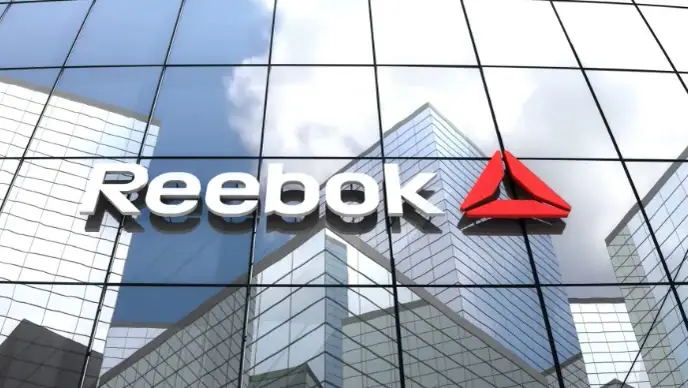Reebok Israel Boycott: What You Need to Know
Business shopping operations often create confusion for customers. Many active brands exist in the market making it difficult to maintain awareness. Some manufacturer relations with political entities generate intense backlash among the general public. The Reebok Israel boycott has become a widespread public discussion during recent times. Numerous consumers remain uncertain about the nature of this boycott together with its implications for customers. The following explanation explains the matter simply.
Why Are People Boycotting Reebok?
The first request to avoid purchasing Reebok products emerged in 2016. Apprehending the plans of the company showed their intent to release a sneaker dedicated to Israel’s Independence Day marking date. The sneaker contained the print “Israel 68” which created displeasure within various groups of people. The Palestinian community commemorates Nakba Day together with May 15 because it marks the anniversary of displaced people losing homes and land in 1948.
The news announcement on social media platforms caused many people to experience strong anger. Many people considered the sneaker support to be disrespectful toward the situation. Numerous people initiated a campaign that led to Reebok product boycotts. Reebok decided to end the sneaker release within minutes of the negative response from their audience. They announced the launch mistake had been wrong and opposed it officially.

Fast forward to 2025, and the issue is back in the spotlight. Reebok recently partnered with the Israel Football Association (IFA). This group has connections to illegal settlements in Palestinian territories. Because of this partnership, many people are once again calling for a worldwide boycott of Reebok.
What Does the Boycott Mean?
BDS represents a collective movement of Boycott Divestment and Sanctions which functions through this particular boycott. The main objective of BDS is to enforce corporate responsibility regarding their activities in relation to Palestine. Supporters argue that Reebok and other companies should discontinue earning profits when doing actions that damage Palestinians.
According to Abdulrahman Abunahel who works with the Palestinian BDS National Committee several companies change their business approaches when faced with boycott pressure. Reebok discontinued its sneaker plans in 2016 because it wanted to protect its corporate image according to Abdulrahman Abunahel of the Palestinian BDS National Committee.
Why Should You Care?
You might be wondering why this boycott matters to you as a shopper. Here are some reasons:
- Your Money Matters: When you buy something, you’re supporting that brand. If you don’t agree with what they do, it’s totally okay to choose not to buy from them.
- Make Informed Choices: Knowing where your money goes can help you make better decisions. It allows you to support brands that match your values.
- Raise Awareness: Talking about these issues can help others understand why boycotts happen. It encourages more people to think critically about their purchases.
What Can You Do? Making Ethical Consumer Choices
Want your spending to make a difference? It’s more than just a single purchase. Here’s a guide to navigating ethical consumerism:
1. Research Deeply: Investigate any company before buying.
- News: Check reputable news for investigative reports.
- NGOs: Explore sites like Ethical Consumer or the Better Business Bureau. [Link to relevant organizations].
- Company Reports: Critically read company sustainability reports.
- Databases: Explore databases tracking corporate political contributions. [Link to a relevant database, if available].
2. Stay Informed & Connect: Ethical consumerism is ongoing.
- Follow News: Subscribe to newsletters covering business ethics and social responsibility.
- Engage with Groups: Follow organizations like BDS (if relevant) or other ethical consumer groups.
- Join the Conversation: Discuss these issues respectfully with others.
3. Support Ethical Businesses: Actively support companies that align with your values.
- B Corps: Look for Certified B Corporations.
- Fair Trade: Seek Fair Trade-certified products.
- Local Businesses: Support local businesses connected to their communities.
- Research Smaller Brands: Discover smaller brands built on ethical principles.
4. Consider Your Impact: Your purchases have power. Make informed, ethical choices to contribute to a better world. It’s about mindful spending, not perfection.
Personal Stories Matter About Reebok Israel Boycott
Understanding the real-world impact of our spending can be a powerful motivator for ethical consumerism. It’s not just about abstract principles; it’s about the real lives of people and communities affected by corporate practices. For example, learning about how a company’s supply chain impacts workers’ rights or the environment can make us think twice about our purchases.
These stories, whether they involve labor practices, environmental damage, or other ethical concerns, can inspire us to make more informed and responsible choices. When we connect the dots between our purchases and their real-world consequences, we realize that even small changes in our shopping habits can contribute to a larger movement for positive change.
Summary
The Reebok Israel boycott is more than just a trend; it’s part of a bigger conversation about ethics in shopping. While Reebok has tried to distance itself from past controversies, its recent actions have sparked renewed interest in boycotting its products.
In the end, whether or not to participate in this boycott is totally up to you. It’s important to think critically about where your money goes and how it aligns with your values as a consumer.







